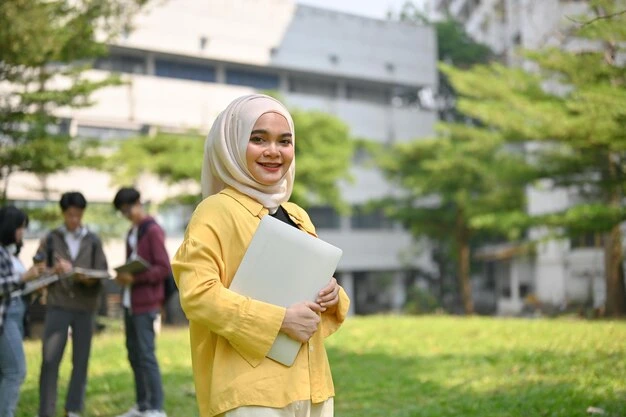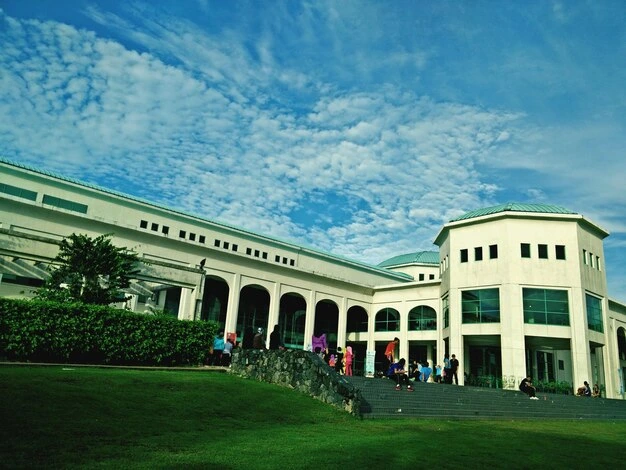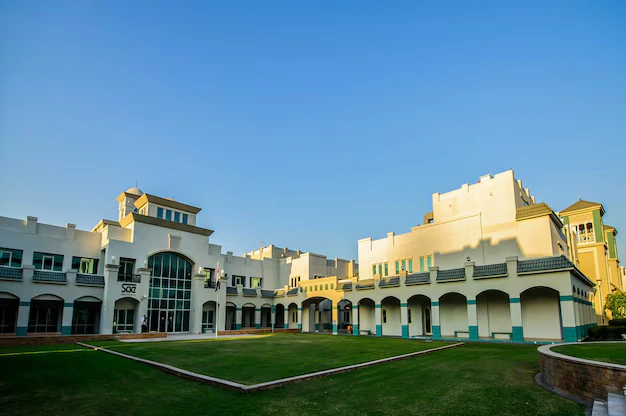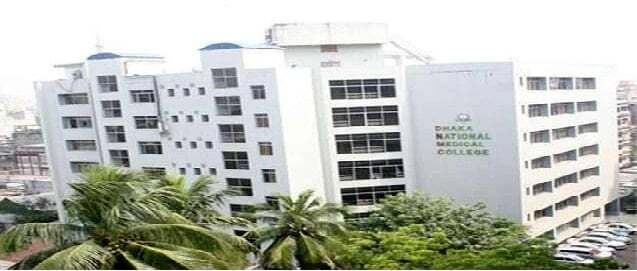Study MBBS in Malaysia For Indian Students 2025 - Comprehensive Guide on Medical Schools in Malaysia, Admission, Fee
Malaysia is a popular destination for Indian students seeking a medical degree due to its affordable tuition, high-quality education, and internationally recognized programs. Many malaysian universities, including Monash University Malaysia and the International Medical University, offer MBBS programs aligned with global standards. The medium of instruction is primarily English, making it easier for international medical students to adapt. Approximately 5,000 to 7,000 Indian students are pursuing medical studies in Malaysia annually, attracted by lower costs and global recognition of Malaysian degrees.
About Malaysia
The National Medical Commission of India (NMC) recognizes medical degrees from Malaysia, enabling students to return to India for further training or practice without extensive revalidation. Malaysian universities are highly ranked in the world university rankings by subject 2025, emphasizing the quality of their medical training and research opportunities.
| Category | Details |
|---|---|
| Capital | Kuala Lumpur |
| Official Language | Malay (Bahasa Malaysia) |
| Currency | Malaysian Ringgit (MYR) |
| Number of Universities | 15+ Recognized Medical Universities |
| Average Tuition Fees for MBBS | INR 9 lakhs – INR 25 lakhs approx. |
| Cost of Living | INR 15,000 – 35,000 per month approx. |
| Minimum and Maximum Temperature | 23°C to 33°C throughout the year |
| Exchange Rate to INR | 1 MYR ≈ 18 INR (varies with currency fluctuations) |
| Climate | Tropical with consistent humidity and rainfall throughout the year |
Malaysia has a rich historical background, marked by influences from the British colonial era and regional cultures, including Malay, Chinese, and Indian traditions. The country achieved independence from British rule in 1957, forming a vibrant, multi-ethnic society. Over the years, Malaysia has developed into a hub for education, business, and tourism in Southeast Asia, attracting students and professionals from around the world.
Cultural Insights and Geographical Overview of Malaysia
Malaysia’s cultural diversity offers a blend of Asian traditions, making it welcoming to Indian students. It is geographically close to India, with frequent direct flights and minimal time zone differences, ensuring students stay connected with home. The tropical climate in Malaysia offers warm temperatures throughout the year, with two main seasons: the dry season (March to September) and the wet season (October to February).
The Educational System to Study MBBS in Malaysia 2025
Malaysia’s educational system is modeled on international frameworks, offering a blend of theoretical and practical learning. Medical studies in Malaysia follow a 5-year program comprising two pre-clinical years and three clinical years in affiliated hospitals. Universities like Monash University Malaysia and the International Medical University (IMU) provide extensive hands-on clinical training, preparing students for careers as medical practitioners globally.
The National Medical Commission of India (NMC) requires Indian students to obtain an eligibility certificate before commencing their studies abroad. Upon graduation, students receive an MBBS degree equivalent to those awarded in India, and the MBBS in Malaysia is relatively less expensive than in Western countries. Medical graduates can pursue postgraduate medical programs in Malaysia or transfer credits to partner institutions worldwide, including the UK, Australia, and Canada.
Malaysia’s universities are also recognized by global bodies like the WHO and ECFMG, ensuring that students meet international standards and have access to a wide range of career opportunities across the globe. This makes Malaysia a practical and cost-effective destination for those seeking to study abroad and gain a degree that is widely respected internationally.
For more details about fees and admission procedures, students are advised to check with the specific university they are applying to, as tuition costs vary based on the institution and program type
Want To Study in Malasia?

Why Study MBBS Degree in Malaysia 2025-26?
Studying MBBS in Malaysia offers international students, especially from India, a blend of high-quality education, affordability, and a multicultural environment. Malaysia is recognized for its medical education excellence, with universities ranked among the best globally. Here’s an in-depth look at why studying an MBBS degree in Malaysia is advantageous:
High-Quality Education & Global Recognition
- Top-Ranked Medical Universities: Malaysia hosts prestigious universities like Monash University Malaysia and the International Medical University, which provide internationally recognized medical degrees. These institutions are recognized by bodies such as the Malaysian Medical Council and the World Federation for Medical Education.
- National Medical Commission of India (NMC) Approval: MBBS programs in Malaysia follow the guidelines set by the NMC, ensuring that graduates can practice medicine in India. An eligibility certificate from the NMC is required, allowing students to validate their degrees when returning to practice in India .
Affordable Tuition Fees and Living Costs
- Relatively Less Expensive: Compared to studying MBBS in other countries like the US, UK, or Australia, Malaysia offers affordable tuition fees and a lower cost of living while maintaining a high standard of education and facilities .
- Fee Structure Details: For instance, tuition fees for MBBS programs range from approximately 70,000 to 1,20,00,000 INR for the entire course duration, depending on the university. Living expenses, including accommodation and food, are also more affordable compared to Western countries.
Cultural Diversity and a Strategic Location
- Cultural Exposure: Malaysia’s diverse society exposes students to various cultures, enhancing their interpersonal and communication skills—key traits for medical practitioners
. - Convenient Location: Situated in Southeast Asia, Malaysia is easily accessible from many major cities worldwide, making it an attractive option for international students. The proximity is especially beneficial for Indian students, providing them with easier travel and connection to home .
Comprehensive Medical Training Programs
- Modern Facilities & Curriculum: Malaysian medical universities offer state-of-the-art facilities, advanced medical technologies, and a curriculum aligned with international standards. The structured programs ensure that medical graduates receive hands-on training, making them competent and competitive in the global medical field .
- English-Medium Instruction: Medical studies in Malaysia are primarily taught in English, making it an ideal destination for international students looking for English-medium medical education.
.
Malaysian Medical Council Recognition
- Accredited Programs: Medical colleges in Malaysia are recognized not only by the Malaysian Medical Council but also by international bodies such as the World Health Organization (WHO) and the Educational Commission for Foreign Medical Graduates (ECFMG). This global recognition ensures that graduates have the flexibility to pursue careers in various countries.
Career Opportunities Post-MBBS
- Career Pathways: After completing an MBBS in Malaysia, graduates can pursue further specializations, engage in clinical practice, or even explore research opportunities within Malaysia or abroad. Malaysia’s medical training and qualification align well with international medical standards, opening pathways for graduates globally .
- Work Opportunities in Malaysia: The Malaysian government offers medical graduates opportunities to work in local hospitals and clinics, gaining practical experience and enhancing their skills.
By choosing Malaysia for medical studies, students benefit from a combination of global education standards, affordable tuition, cultural diversity, and international career opportunities.
- English-Medium Instruction: Medical studies in Malaysia are primarily taught in English, making it an ideal destination for international students looking for English-medium medical education.
- Modern Facilities & Curriculum: Malaysian medical universities offer state-of-the-art facilities, advanced medical technologies, and a curriculum aligned with international standards. The structured programs ensure that medical graduates receive hands-on training, making them competent and competitive in the global medical field .
Want To Study in Malasia?

Study MBBS in Malaysia for Indian Students 2025-26
- Studying MBBS in Malaysia presents a compelling opportunity for Indian students seeking a high-quality medical education in an international setting. Malaysia’s education system is increasingly recognized for its excellent standards, and the country offers a welcoming environment for international students. This section delves into the specifics of pursuing an MBBS degree in Malaysia, highlighting the benefits, affordability, safety, fees, and scholarship opportunities.
MBBS in Malaysia for Indian Students
The MBBS course in Malaysia is structured to meet international standards while aligning closely with Indian medical education. The course typically spans five years, with a curriculum that includes essential subjects such as Anatomy, Physiology, Biochemistry, Pathology, Pharmacology, and Clinical Medicine.
Key Features:
- Language of Instruction: Most medical universities in Malaysia use English as the medium of instruction, making it easier for Indian students to adapt without language barriers.
- Diverse Cultural Environment: Malaysia is known for its rich cultural diversity, allowing students to experience various cultures while studying. This exposure enhances interpersonal skills and broadens their global perspective.
- Clinical Training: Malaysian medical universities offer extensive clinical training opportunities, often in affiliated hospitals, where students gain hands-on experience in real healthcare settings.
Affordable Fees
One of the most attractive aspects of studying MBBS in Malaysia is the affordable fees. Compared to Western countries, the cost of education in Malaysia is significantly lower while maintaining high educational standards. The average tuition fees for MBBS programs , which includes various subjects and clinical rotations.
Safety Purpose in Good
Safety is a crucial consideration for international students. Malaysia is known for its stable political environment and relatively low crime rate, contributing to a secure atmosphere for students. The government prioritizes the safety of all residents, including international students, by maintaining effective law enforcement and community safety initiatives.
University Measures:
- Campus Security: Most universities have robust security measures in place, including surveillance systems and on-campus security personnel.
- Support Services: Many institutions provide dedicated support services for international students, ensuring they have access to help and resources during their stay.
Scholarships for MBBS in Malaysia
To ease the financial burden on students, various scholarship opportunities are available for those pursuing MBBS in Malaysia. Scholarships can help cover tuition fees and living expenses, making education more accessible.
Want To Study in Malasia?

Admission Process for Studying MBBS in Malaysia 2025-26
Eligibility Criteria and Required Documents for Studying MBBS in Malaysia 2025-26
To secure admission to MBBS universities in Malaysia, students must meet specific academic and documentation requirements. These include:
- Age Requirement: Applicants should be at least 17 years old by December 31st of the admission year. There is no upper age limit.
- Academic Qualification: A minimum of 50% marks in Physics, Chemistry, Biology (PCB), and English is required in 10+2. For reserved categories (SC/ST/OBC), a minimum of 45% is accepted.
- NEET Qualification:
Indian students aiming to pursue MBBS in Egypt must qualify the National Eligibility cum Entrance Test (NEET). For the 2024 academic year, the required NEET scores are:
- General Category: 50th percentile, with scores between 720-162
- SC/ST/OBC Categories: 40th percentile, with scores between 161-127
- English Proficiency: IELTS or TOEFL scores may be required by some universities, with a typical minimum IELTS score of 6 to 6.5.
Required Documents:
- Valid passport with a minimum of 18 months of validity.
- Class 10th and 12th mark sheets and passing certificates.
- Birth certificate and medical fitness certificate.
- 10 passport-size photographs.
- Official admission offer letter from the university.
- Legalization of documents from the Ministry of External Affairs (India) and the Malaysian Embassy.
- Receipt of first-year tuition fee payment.
- Consent letter from parents and, if required, a personal statement and letters of recommendation.
Admission Process for MBBS in Malaysia
The admission process is straightforward and mostly conducted online:
- Choose a University: Research and select the university offering the MBBS course in Malaysia that fits your needs.
- Submit Online Application: Complete the admission form on the official website of the chosen university.
- Upload Documents: Provide scanned copies of necessary documents like academic certificates, NEET score, and passport.
- Receive Offer Letter: Once approved, the university sends an offer letter confirming provisional admission.
- Fee Payment: Pay the registration and tuition fees to confirm your seat.
- Apply for Visa: Begin the visa application process after receiving the confirmation letter.
Application Process and Deadlines to Study MBBS in Malaysia 2025
- Application Windows: Typically, Malaysian universities offer two intakes—February and September. Students must apply 3-4 months in advance.
- EMGS Approval: Once the application is submitted, students must pay the Education Malaysia Global Services (EMGS) fee and await approval.
- Submission of Additional Documents: Some universities may request supplementary documents, such as letters of recommendation and a medical health certificate, for final verification.
Applying early is recommended to avoid delays in obtaining EMGS approval and processing the visa.
Visa Requirements and Process for MBBS Study in Malaysia
Obtaining a student visa to pursue an MBBS course in Malaysia involves several steps:
- Obtain an Offer Letter: Submit your documents to the chosen university and get an acceptance letter.
- Apply for Visa: After paying the necessary fees, students must apply through the Malaysian embassy or VFS office in their home country.
- Visa Documentation:
- Completed visa application form.
- Copy of passport (all pages).
- EMGS approval letter.
- Medical declaration form.
- Recent passport-sized photographs.
- Visa Processing Time: The process usually takes 45 to 60 days.
Upon visa approval, students are eligible to travel and commence their studies.
Malaysia’s structured admission system, with support from EMGS, ensures smooth processing for international students. Its affordable tuition and accessible entry requirements make MBBS in Malaysia for international students an attractive choice, especially for Indian applicants looking to study abroad with fewer financial burdens and high-quality education standards.
Want To Study in Malasia?

Fee Structure and Cost of Studying MBBS in Malaysia 2025-26
Studying MBBS in Malaysia offers an affordable alternative compared to other popular study destinations like the UK or USA. Below is a detailed breakdown of the costs and financial planning aspects involved.
Tuition Fees to Study MBBS in Malaysia
The tuition fees for an MBBS course in Malaysia typically range between INR 10 to 25 lakh per year (MYR 60,000 – 110,000). The total cost for the entire course, including clinical training, can vary between INR 15 to 60 lakh based on the university and whether it’s a private or public institution. Universities like AIMST, MAHSA, and Taylor’s University offer programs with competitive pricing and global recognition.
Other Fees and Financial Costs Associated with Studying MBBS in Malaysia
Additional expenses are necessary for international students, including:
- Accommodation: On-campus housing ranges from MYR 500 – 1,000/month (~INR 10,000-20,000)
- Food & Living Expenses: MYR 400-500 (~INR 8,500-10,500) per month
- Health Insurance: MYR 400-600/year (~INR 8,000-12,500)
- Travel & Transport: MYR 100-300 (~INR 2,000-6,500) monthly
- Visa & Application Fees: ~MYR 193-1,930 (~INR 4,000-40,000)
Detailed Breakdown of Fees
| Expense | Cost (MYR) | Cost (INR) |
|---|---|---|
| Annual Tuition Fees | 60,000 – 110,000 | 10 – 25 lakh |
| Accommodation (Monthly) | 500 – 1,000 | 10,000 – 20,000 |
| Health Insurance (Annual) | 400 – 600 | 8,000 – 12,500 |
| Living Expenses (Monthly) | 1,500 – 2,500 | 30,000 – 50,000 |
| Books & Supplies (Annual) | 1,000 – 2,000 | 20,000 – 40,000 |
Hidden Costs to Study MBBS in Malaysia
While tuition fees and living expenses cover most of the costs, students should also plan for:
- Textbooks and Clinical Equipment: Some courses may require students to purchase their own instruments for clinical training.
- Examination and Certification Fees: Students may need to pay additional fees for licensing exams or certificates recognized by the National Medical Commission India.
- Travel during Clinical Rotations: Clinical rotations may require travel to affiliated hospitals, which adds to transport expenses.
Financial Planning to Study MBBS in Malaysia
Proper financial planning helps students manage their budget effectively. Here are a few key strategies:
- Payment Plans: Many universities offer Installment plans to ease the financial burden.
- Part-time Work: International students in Malaysia can work up to 20 hours per week during semesters to support their expenses.
- Scholarships: Though scholarships are limited for MBBS courses, some universities offer merit-based discounts or financial aid to international students.
- Savings and Budgeting: Creating a monthly budget for housing, food, and transportation ensures financial stability throughout the course.
Malaysia’s cost-effective education system, coupled with excellent medical training, makes it an attractive destination for students looking to study MBBS abroad. With affordable fees, minimal language barriers (due to English-medium instruction), and modern amenities, Malaysia is well-suited for international students pursuing a career in medicine.
This detailed cost structure allows students to assess and plan their finances better, ensuring they can focus on achieving academic success without unexpected financial stress.
Want To Study in Malasia?

Top Medical Universities to Study MBBS in Malaysia 2025-26
Top Medical College in Malaysia
| University Name | Total Tuition Fee with Hostel in USD | Total Tuition Fee with Hostel in INR |
|---|---|---|
| AIMST University | 10,453 USD | 8,36,240 INR |
| Asia Metropolitan University | 82,123 USD | 65,69,840 INR |
| University of Cyberjaya | 20,475 USD/Year | 16,38,000 Malaysia Ringgit/Year (After Scholarship 75,000 Malaysia Ringgit/Year) |
| International Medical University | 23,610 USD | 18,88,800 INR |
| MAHSA University | 15,330 USD | 12,26,400 INR |
| Newcastle University Medicine Malaysia | Update Soon | Update Soon |
| Perdana University | 13,116 USD | 10,49,280 INR |
| Quest International University | Update Soon | Update Soon |
| SEGi University | Update Soon | Update Soon |
| Taylor’s University | 21,816 USD | 1,745,280 INR |
| Universiti Sains Malaysia | Update Soon | Update Soon |
| University of Malaya | Update Soon | Update Soon |
Best Medical Universities for MBBS in Malaysia
- International Medical University (IMU): IMU offers multiple intakes and provides students with opportunities to transfer to affiliated universities abroad during their studies.
- Universiti Sains Malaysia (USM): USM emphasizes research and provides state-of-the-art laboratories and clinical facilities.
- AIMST University: Known for its international focus, AIMST offers multiple intakes per year and provides strong support for international students.
- Melaka-Manipal Medical College (MMMC): Offers a program tailored to Indian students, with an emphasis on clinical training in affiliated hospitals.
- Cyberjaya University College of Medical Sciences (CUCMS): Focuses on advanced medical education and research opportunities with modern healthcare facilities.
Top Ranked Medical Colleges in Malaysia 2025-26
| University Name | Global Ranking (2024) | Rank in Malaysia (2024) |
|---|---|---|
| University of Malaya (UM) | 65 | 1 |
| Monash University Malaysia | 40 (branch campus) | 2 |
| Universiti Kebangsaan Malaysia (UKM) | 129 | 3 |
| International Medical University (IMU) | 3159 | 4 |
| Taylor’s University | 2940 | 5 |
Want To Study in Malasia?

Advantages of Studying MBBS in Malaysia 2025-26
Pursuing MBBS in Malaysia offers multiple advantages, particularly for Indian students, by combining affordability, quality education, and practical exposure. Here’s an in-depth breakdown of the key benefits:
Affordable Education
The medical colleges of Malaysia provide a cost-effective option compared to Western countries. Total tuition fees for MBBS programs range from INR 10 to 60 lakh, making it accessible for students from various financial backgrounds. Malaysia offers transparent fee structures without hidden charges or donation requirements, ensuring clarity for international students throughout the admission process.
High-Quality Education and Recognition
Malaysian universities maintain high educational standards with modern infrastructure, skilled faculty, and English as the primary medium of instruction. The certificate from National Medical Commission (NMC) India ensures that Malaysian medical degrees are valid in India, making graduates eligible for the MCI screening test and licensing exams worldwide. Additionally, the programs are recognized by international organizations such as WHO, enhancing global career prospects.
No Entrance Examinations and Simple Admission Process
Malaysia offers direct admission without entrance exams, simplifying the enrollment process. However, Indian students must provide an eligibility certificate from National Medical Commission to enroll and appear for the NEET exam, which is a mandatory requirement to practice medicine in India upon graduation.
Diverse Career Opportunities and Internships
Graduates enjoy broad career prospects. The exposure to modern medical practices through internships at affiliated hospitals prepares students for diverse specializations or further studies abroad. Universities like International Medical University and MAHSA University also offer advanced clinical training to enhance students’ practical knowledge.
Supportive Environment and Student Services
Malaysia offers strong support for international students, including student clinics, medical insurance, and counseling services. Universities often have a multicultural student community, making it easy for Indian students to adapt. Availability of Indian cuisine and a climate similar to that of India adds to the comfort.
Additional Benefits of Studying in Malaysia
- Lower Cost of Living: Students typically spend INR 20,000 to 30,000 per month on accommodation, food, and other expenses, making Malaysia an affordable destination.
- Safe and Secure Environment: Known for its low crime rates and stable political environment, Malaysia ensures a secure space for students.
- Global Exposure and Exchange Programs: Universities in Malaysia encourage research and innovation, providing opportunities for global collaboration and exchange programs.
Want To Study in Malasia?

Course Details and Curriculum of Studying MBBS in Malaysia 2025-26
MBBS Curriculum and Structure in Malaysia
| Year | Key Modules/Subjects | Focus Area | Rotations/Clinical Training |
|---|---|---|---|
| Year 1 | Basic Medical Sciences: Anatomy, Biochemistry, Pharmacology, Histology, Medical Ethics | Foundation in Human Body Systems | N/A |
| Year 2 | Cardiovascular System, Respiratory System, Gastrointestinal System, Endocrine System, Epidemiology & Biostatistics | Introduction to Disease Mechanisms and Diagnostics | N/A |
| Year 3 | Surgery, Internal Medicine, Dermatology, Obstetrics & Gynecology | Beginning Clinical Rotations | Medical, Primary Care, and Community Health Postings |
| Year 4 | Psychiatry, Orthopaedics, Ophthalmology, Emergency Medicine, Anaesthesia | Advanced Clinical Skills Development | Psychiatry, Anaesthesia, and Emergency Medicine Rotations |
| Year 5 | Senior Clerkships: Pediatrics, Internal Medicine, Surgery | Final Preparations for Practice | Shadow Housemanship in Surgery, Pediatrics, Obstetrics, and Gynaecology |
Duration of MBBS Program in Malaysia
The MBBS program in Malaysia generally takes 5 years to complete. It is structured to ensure a gradual transition from theoretical learning in the initial years to clinical practice and hands-on hospital training in the later years
Academic Support Services
- Student Learning Centers and E-learning platforms assist students in keeping up with the evolving curriculum.
- Mentorship programs, access to faculty for consultation, and peer-support initiatives ensure students receive academic and emotional support throughout the course.
Research and Laboratory Facilities
Medical universities in Malaysia feature modern clinical skill labs, multidisciplinary research centers, and 3D anatomical dissection tools. Institutions like IMU and Universiti Malaya offer research opportunities integrated into the curriculum, preparing students to engage in academic or clinical research careers.
Online Learning Resources and Platforms
Students have access to online learning platforms such as UpToDate and AMBOSS, which are used extensively to supplement their clinical knowledge during rotations and practical sessions. These platforms are integrated into the curriculum to promote self-directed learning.
Use of Technology in Medical Education
Medical schools leverage augmented reality, virtual dissection tables, and smart classrooms to enhance learning experiences. This innovative use of technology prepares students to tackle the challenges of modern healthcare and equips them with practical skills for clinical setting.
Malaysia’s MBBS program offers a balanced curriculum focused on building competent medical professionals by combining theoretical foundations, clinical practice, and research exposure. The structured rotations and access to modern facilities make Malaysia a promising destination for students looking to pursue a career in medicine.
Want To Study in Malasia?

Studying MBBS in Malaysia Syllabus
The program is structured to provide a balance between theoretical learning in the initial years and clinical exposure in the later years. Clinical rotations typically begin from the third year, allowing students to apply their theoretical knowledge practically in hospitals and community health settings.
MBBS Syllabus in Malaysia 2025
| Year | Subjects / Topics Covered |
|---|---|
| 1st Year | Basic Medical Sciences, Cardiovascular System, Hematology, Mechanism of Disease |
| 2nd Year | Epidemiology, Nervous System, Gastrointestinal System, Nutrition, Endocrine & Reproductive Systems |
| 3rd Year | Medicine Posting, Surgery Posting, Dermatology, Obstetrics & Gynecology, Community Health |
| 4th Year | Primary Care, Psychiatry, Orthopedics, Anesthesia, Ophthalmology, Emergency Medicine |
| 5th Year | Pediatrics, Advanced Surgery, Gynecology, Psychiatry, Final Medical Internship |
Key Subjects and Curriculum for MBBS in Malaysia
- Pre-Clinical Phase (Years 1 & 2): Focuses on fundamental medical sciences such as Anatomy, Biochemistry, Pharmacology, and Microbiology. This phase also covers basic systems like cardiovascular, respiratory, and hematology.
- Clinical Phase (Years 3-5): Emphasizes hands-on training through hospital postings in areas such as surgery, psychiatry, gynecology, pediatrics, and general medicine.
Malaysia’s curriculum integrates practical exposure early, offering students a chance to experience patient care from their initial years of study, preparing them for real-world medical challenges.
The internship or horsemanship in Malaysia is mandatory and spans two years. During this time, students rotate across various departments such as surgery, internal medicine, and pediatrics to gain essential clinical skills and experience needed to function independently as medical professionals.
Licensing Exams after MBBS in Malaysia
Graduates must complete the two-year horsemanship to obtain full registration with the Malaysian Medical Council (MMC). After horsemanship, many students pursue residency programs to specialize further in areas like surgery or internal medicine. Additionally, Malaysian universities incorporate preparatory components for international licensing exams such as the USMLE for students aiming to practice abroad.
Ethical Practices in Medical Education in Malaysia
Malaysian medical programs emphasize the importance of ethical medical practices. Courses often include modules on patient confidentiality, informed consent, and professional behavior. Students also engage in discussions about medical ethics and bioethics throughout their studies, aligning with global healthcare standards.
Environmental Sustainability in Medical Universities in Malaysia
Medical institutions in Malaysia are increasingly focusing on environmental sustainability by adopting green initiatives. These include reducing plastic use on campus, implementing waste management practices, and encouraging research into public health and environmental impacts. Universities also integrate topics on environmental health within the curriculum to foster sustainable healthcare practices among future medical professionals.
This structured approach ensures that students not only gain a comprehensive understanding of medical sciences but also develop the competencies needed for successful medical careers in Malaysia and internationally. The practical focus, combined with ethical and environmental awareness, makes MBBS education in Malaysia a compelling choice for Indian students seeking high-quality medical training abroad
Want To Study in Malasia?

Opportunities and Career Prospects After Studying MBBS in Malaysia 2025-26
Malaysia offers excellent career prospects and opportunities for MBBS graduates, with a robust healthcare system and international recognition of degrees. Below is a detailed breakdown of the various aspects of career opportunities for those who complete their MBBS in Malaysia.
Career and Job Prospects After MBBS in Malaysia
- Local and International Practice: Graduates can pursue careers in both public and private healthcare sectors in Malaysia or abroad, as Malaysian MBBS degrees are recognized by international bodies like WHO, ECFMG, and FAIMER.
- Growing Healthcare Industry: Malaysia’s healthcare sector is expanding, creating a demand for general practitioners, specialists, and healthcare administrators.
- Options Beyond Clinical Practice: Graduates can also explore careers in medical research, public health, or teaching in academic institutions.
Higher Studies After MBBS in Malaysia
- Postgraduate Specialization: Graduates can opt for specialized postgraduate studies in fields like cardiology, pediatrics, radiology, and orthopedics.
- Global Opportunities: Malaysian MBBS graduates are eligible to pursue advanced medical education in countries like the UK, Australia, and the USA due to the recognition of their degrees.
- Collaboration with International Universities: Many Malaysian universities have partnerships with foreign institutions, offering dual-degree programs and opportunities for further study abroad.
Licensing and Practice in Malaysia
- Two-Year Internship Requirement: After graduation, students must complete a mandatory two-year internship (housemanship) to gain hands-on experience.
- Licensing Process: To practice medicine in Malaysia, graduates must pass the national licensing examination and register with the Malaysian Medical Council.
Part-Time Work Opportunities for MBBS Students in Malaysia
- Limited Work Hours: International students are allowed to work part-time for up to 20 hours per week during semester breaks or holidays, mainly in retail, food services, or tourism sectors.
- Focus on Academics: Given the demanding nature of the MBBS course, part-time work opportunities are often pursued cautiously by students.
Post-MBBS Job Placement Services
- Placement Assistance: Many universities in Malaysia offer job placement services through career fairs and networking events, connecting students with hospitals and healthcare employers.
- Residency Programs: Graduates can also enroll in residency programs, which provide specialized training essential for medical careers.
Alumni Network for MBBS Graduates from Malaysia
- Strong Alumni Networks: Universities like the University of Malaya and Monash University Malaysia have well-established alumni networks offering mentorship and career guidance.
- Global Connections: Alumni networks facilitate professional connections across borders, creating opportunities for career advancement.
Alumni Success Stories
- Global Achievements: Graduates from Malaysian universities have succeeded in establishing careers in various healthcare fields across the globe, including hospital administration and research.
- Impactful Contributions: Some alumni have returned to their home countries, contributing to healthcare advancements through innovative medical practices and research.
Common Challenges Faced by International MBBS Students and How to Overcome Them
- Cultural and Language Barriers: While most courses are taught in English, adapting to the local culture may be challenging initially. Universities offer language support and cultural adaptation programs.
- Financial Management: Managing finances can be a concern for some students. It is recommended to budget expenses carefully and explore scholarships or part-time work options where possible.
- Academic Pressure: The rigorous nature of the MBBS course demands excellent time management and stress-handling skills. Universities provide counseling services to support students in overcoming academic challenges.
These career prospects reflect the strengths of Malaysia’s medical education system and the potential for both local and global career paths for graduates. Students benefit from internationally recognized degrees and structured pathways for further education and career advancement
Want To Study in Malasia?

Studying MBBS in Malaysia vs MBBS in India 2025-26
| Criteria | MBBS in Malaysia | MBBS in India |
|---|---|---|
| Course Duration | 5 years (including clinical rotations) | 5.5 years (4.5 years academics + 1-year internship) |
| Post-Graduation Opportunities | Residency programs (MD/MS) with options to specialize in pediatrics, radiology, cardiology, etc.; Horsemanship (2-year internship) mandatory for local practice | Various PG courses (MD/MS), NEET-PG mandatory; preference to MCI-recognized institutions |
| Recognition | Malaysian degrees recognized by MMC, MCI, WHO; students may need licensing exams for other countries | Recognized by MCI/NMC; degrees accepted globally, with specific licensing for some countries |
| Entrance Requirements | NEET score required; no additional entrance exams | NEET qualification mandatory with high cutoff |
| Fees Structure | INR 25-35 lakhs for the entire program | Government colleges: INR 11,000 to 7.5 lakhs; Private colleges: INR 20 to 80 lakhs |
| Exposure and Opportunities | International exposure; opportunities to work abroad or in multicultural environments | Primarily domestic exposure with limited international opportunities |
| Teaching Medium | English | English/Hindi (depending on region) |
Post Graduation Opportunities After MBBS in Malaysia
Residency and Specialization Programs:
- Graduates can pursue MD or MS programs focusing on specialties such as pediatrics, anesthesiology, or surgery.
- The horsemanship program (2-year clinical internship) is mandatory for Malaysian practice and provides hands-on experience in hospitals.
- Post-residency, supervised training of 2-4 years is required to gain full specialization status.
Global Opportunities:
- Malaysian MBBS graduates are eligible to apply for postgraduate courses in countries like Australia, the UK, and the US through credit transfer programs offered by some Malaysian universities.
- Licensure exams, such as USMLE or PLAB, are supported by universities for students planning to work abroad.
Research and Academic Careers:
- Many universities in Malaysia, such as the University of Malaya and IMU, offer pathways to research-based medical careers or teaching positions.
Recognition of MBBS from Malaysia
- Malaysian Medical Council (MMC): MBBS degrees from Malaysian universities are recognized by the MMC and accepted by international bodies like WHO and MCI/NMC.
- Licensing Exams: Graduates may need to clear local licensing exams for countries like the UK, Australia, or India, depending on their desired place of practice.
- Global Mobility: With degrees recognized across multiple countries, students can apply for internships, residencies, or postgraduate programs abroad without significant barriers.
Advantages of MBBS in Malaysia vs India
| Advantages | MBBS in Malaysia | MBBS in India |
|---|---|---|
| International Exposure | Opportunities for internships in multicultural environments, global collaborations | Limited exposure; mostly confined to the Indian healthcare system |
| Fees Structure | More affordable than Indian private colleges (25-35 lakhs) | Private colleges can cost up to INR 80 lakhs |
| Student Lifestyle | Diverse cultural environment; availability of Indian food and support services | Familiar cultural environment but with less international diversity |
| Safety and Infrastructure | Political stability and high student safety with excellent facilities | Good infrastructure, but safety varies regionally |
| Admission Process | No entrance exam beyond NEET; straightforward admissions | NEET with competitive cutoffs and limited seats in government colleges |
Want To Study in Malasia?

Studying MBBS in Malaysia vs MBBS in Other Countries 2025-26
| Criteria | MBBS in Malaysia | MBBS in Other Countries |
|---|---|---|
| Duration | 5-6 years (including clinical practice) | Varies (5-6 years in most countries) |
| Tuition Fees | $15,000 – $25,000 per year | Varies: $30,000 – $60,000 (USA/UK); $3,000 – $8,000 (Russia, China) |
| Recognition | Recognized by WHO, MCI/NMC, and other international bodies | Depends on the country; check for MCI/NMC & WHO recognition |
| Medium of Instruction | English | English, Local languages (varies by country) |
| Eligibility | 50% in PCB (Physics, Chemistry, Biology) + NEET Qualification | Varies by country; NEET required for some, entrance exams for others |
| Living Expenses | Moderate: $400 – $700 per month | Varies: Higher in USA/UK; Lower in Russia, China |
| Proximity to India | Close proximity (3-5 hours flight) | Varies; USA, UK, Europe farther from India |
| Clinical Exposure | High-quality clinical training in well-equipped hospitals | Varies based on country and institution quality |
| Cultural Familiarity | Malaysia has a mix of Indian culture and a diverse population | Varies: Cultural differences in Western, Eastern, or European countries |
| Climate | Tropical, warm climate similar to India | Varies: Colder in Europe, moderate in other regions |
| Visa and Travel | Easy and less expensive visa process | Varies; Some countries have complex visa requirements |
| MCI/NMC Passing Ratio | High passing ratio for students from Malaysia | Varies based on the country, Russia/China may have lower ratios |
| Post-Graduation Opportunities | Easier to pursue post-graduation in Malaysia or nearby countries | Varies; easier in some countries (USA, UK), complex in others |
Why Choose to Study MBBS in Malaysia and Not Other Countries
Choosing Malaysia for MBBS offers several compelling advantages for Indian and international students. Here’s why it stands out among other destinations:
Affordable Tuition and Living Costs: MBBS programs in Malaysia are significantly more affordable compared to countries like the USA, UK, and Australia. With tuition fees ranging between INR 9.5 lakh to 28 lakh annually, and living expenses from INR 15 to 25 lakh per year, Malaysia provides an economical study option without compromising education quality
High-Quality Education and Recognized Degrees: Malaysian universities are recognized by global bodies such as WHO, ECFMG, and FAIMER, ensuring that graduates are eligible for international medical practice and licensing exams, such as the USMLE and PLAB.
English-Taught Programs: Courses are delivered in English, reducing language barriers for international students and enhancing accessibility to higher education
Cultural Diversity and International Community: Malaysia’s multicultural environment allows students to integrate easily, making it an excellent place for international students seeking a welcoming and inclusive society
Easy Admission and No Entrance Exam (Other Than NEET for Indian Students): Unlike some other countries, Malaysia does not require extensive entrance exams. NEET qualification is the only mandatory criterion for Indian students
Comparison for MBBS in Malaysia to Other MBBS Abroad Countries
| Aspect | Malaysia | India | UK | Australia | Russia |
|---|---|---|---|---|---|
| Course Duration | 5-6 years with an internship | 5.5 years including internship | 5-6 years | 5-6 years | 6 years (including 1 year prep) |
| Language of Instruction | English | English | English | English | Russian, English |
| Annual Tuition Fees | INR 10-25 lakhs | INR 10-15 lakhs | INR 30-60 lakhs | INR 40-60 lakhs | INR 2.5-6 lakhs |
| Living Costs (Monthly) | INR 20,000-40,000 | INR 15,000-25,000 | INR 80,000-1,50,000 | INR 1,20,000-1,50,000 | INR 10,000-20,000 |
| Recognition | WHO, NMC, FAIMER, WFME | NMC | WHO, GMC | WHO, AMC | WHO, ECFMG |
| Internship Opportunities | Available at top hospitals | Domestic placements | Global placements, NHS hospitals | Placements across Australia | Internships in teaching hospitals |
| Exams Required | NEET only | NEET | UCAT, BMAT, or GAMSAT | GAMSAT or UCAT | No entrance test (NEET optional) |
Want To Study in Malasia?

Scholarships and Financial Aids to Study MBBS in Malaysia 2025-26
Scholarships for MBBS in Malaysia
Malaysia offers several scholarships to support both domestic and international students pursuing MBBS. Notable scholarships include:
- Malaysian International Scholarship (MIS): This covers air tickets, tuition fees, books, and travel expenses, making it ideal for international students aiming to study undergraduate or postgraduate programs in Malaysia.
- RUMC Scholarships: These scholarships provide full tuition fee coverage to students with strong academic performance, such as 3As at A-Level or 38 points in the International Baccalaureate Diploma Program (IBDP).
- SEGi University MBBS Scholarship Scheme: Offers up to RM 33,000 in tuition fee waivers, helping students reduce the financial burden over the course of their study.
- Xiamen University Scholarships: Available for international students, these grants cover full tuition fees for medical programs, making it a highly competitive option
Financial Aids to Study MBBS in Malaysia
In addition to scholarships, financial aid in the form of education loans and government initiatives is available to students:
- PTPTN Loan: This government-funded education loan offers up to RM 250,000 for eligible students, with favorable repayment terms. The loan supports students from the B40 and M40 income groups (families earning below RM 6,275 per month).
- Institution-Specific Waivers and Discounts: Many universities, such as the University of Cyberjaya, offer scholarships and tuition waivers based on academic performance and need. For example, students can receive up to RM 100,000 in financial aid for MBBS programs at select institutions
How to Apply for Scholarships and Financial Aids to Study MBBS in Malaysia
The process of applying for scholarships and financial aid requires careful planning:
- Eligibility Check: Review the scholarship criteria, including academic performance (e.g., 70% in PCB for certain scholarships), and confirm if your family income fits within the required brackets (B40 or M40).
- Gather Required Documents: Collect acceptance letters, transcripts, and standardized test scores like IELTS or TOEFL. Some universities also require deposits or deposit waivers prior to application approval.
- Application Submission: Submit applications online through university portals or government websites. Make sure to meet deadlines, as scholarships such as the Lion-Parkson Foundation’s and Xiamen University’s have specific timelines.
- Interview (if required): Some scholarships, like those from RUMC, may involve interviews to assess candidates further.
- Follow-Up: Keep track of your application and respond promptly to requests for additional information from universities or scholarship bodies.
This comprehensive approach ensures students maximize their chances of securing both scholarships and financial aid while pursuing MBBS in Malaysia.
Want To Study in Malasia?

MBBS Options for Indian Students Other Than Studying MBBS in Malaysia 2025
Popular Countries to Study MBBS Other Than Malaysia
| Country | Total MBBS Fees (INR) |
|---|---|
| Nepal | 40-60 lakhs |
| Bangladesh | 30-45 lakhs |
| Uzbekistan | 15-30 lakhs |
| Russia | 14-50 lakhs |
| Egypt | 35-45 lakhs |
| Iran | 20-35 lakhs |
| Georgia | 20-33 lakhs |
Feasible Options to Study MBBS in Malaysia
- Affordable Tuition Fees: Compared to other countries, Malaysia offers a balance of quality education with relatively moderate fees.
- High-Quality Education: Many Malaysian medical programs align with international standards.
- English-Medium Programs: Most universities conduct MBBS courses in English, reducing language barriers.
- Cultural Proximity and Safety: Malaysia is culturally diverse and offers a safe environment for Indian students.
- Simplified Admission Process: No entrance exams beyond NEET are required, making it a more accessible option.
Pros and Cons of Each Destination
| Country | Pros | Cons |
|---|---|---|
| Nepal | Close to India, familiar culture | Limited post-graduation options abroad |
| Bangladesh | Affordable fees, English-medium programs | Limited infrastructure in some universities |
| Uzbekistan | Low cost of living and fees | Harsh winters, language barrier (Russian) |
| Russia | Globally recognized degree, high-quality education | Language and climate challenges |
| Egypt | Strong focus on practical training | Complex cultural adaptation required |
| Iran | Low fees, good research opportunities | Limited international exposure |
| Georgia | High-quality infrastructure, FMGE coaching | Costly compared to other CIS countries |
Want To Study in Malasia?

Living Cost While You Study MBBS in Malaysia 2025-26
| Country | Monthly Living Costs (USD) | Tuition Fees (Annual) |
|---|---|---|
| Malaysia | 300-600 | 5,000-15,000 |
| India | 200-400 | 1,000-2,500 |
| Russia | 300-700 | 4,000-10,000 |
| Philippines | 400-800 | 4,000-8,000 |
| USA | 1,000-2,000 | 30,000-60,000 |
Language and Communication for International Students in Malaysia
- Medium of Instruction: The medium of teaching in Malaysian medical universities is English, which benefits international students, especially from India, who may find it easier to study in English rather than in a non-native language.
- Language Support: Most universities offer language support services helping students improve their English communication skills, which is essential for their studies and social interaction.
Support Services for International Students to Study MBBS in Malaysia
- Academic Support: Many institutions provide mentoring and tutoring services for students who need additional help, ensuring they can keep up with their studies effectively.
- Counseling Services: Universities offer counseling for personal and academic issues, helping international students adapt to life in a new country.
16.6 Extracurricular Activities and Student Clubs in Malaysia
- Student Organizations: Universities have clubs ranging from sports, music, and art to medical associations, allowing students to engage and network beyond the academic setting.
- Volunteer Opportunities: Many students participate in community service and outreach programs, which not only aid personal development but also enhance their resumes.
Cultural Adaptation and Support Services
- Orientation Programs: Most universities conduct orientation sessions for new international students, helping them understand their new environment, local customs, and academic expectations.
- Cultural Exchange: Participation in cultural events allows students to share their traditions and learn about others, facilitating a smoother cultural adaptation process.
Want To Study in Malasia?

Health and Safety While Studying MBBS in Malaysia
When embarking on the pursuit of an MBBS degree in Malaysia, health and safety considerations are paramount for international students. This section outlines essential aspects of maintaining well-being and security during your studies.
Healthcare Facilities for International Students in Malaysia
- Access to Medical Facilities: Malaysia boasts a robust healthcare infrastructure, with numerous hospitals and clinics available for students. Prominent medical centers include:
- University of Malaya Medical Center (UMMC)
- Prince Court Medical Centre
- KPJ Healthcare Berhad hospitals
- International Services: Many healthcare facilities provide services tailored for international students, including language support and emergency care.
Health Insurance Requirements for International Students
- Mandatory Health Insurance: It is mandatory for international students to have health insurance coverage when studying in Malaysia. The insurance must cover:
- Inpatient and outpatient care
- Emergency medical treatment
- Personal accident coverage
- Government Provisions: The Education Malaysia Global Services (EMGS) oversees health insurance requirements and ensures students are adequately insured upon arrival .
Vaccination and Medical Check-up Requirements
- Vaccination Guidelines:
- International students are generally required to be vaccinated against common diseases (e.g., Hepatitis B, Measles, and Rubella).
- A comprehensive medical check-up may be necessary prior to arriving in Malaysia, as per university requirements.
- Recommended Health Check-ups:
- Conduct a thorough health assessment to ensure fitness for study and adapt quicker to the new environment.
Safety Tips and Resources for International Students
- General Safety Tips:
- Stay aware of your surroundings and avoid isolated places, especially at night.
- Utilize university safety programs, including workshops on personal security .
- Emergency numbers to keep handy:
- Police, Fire, and Medical Emergencies: Dial 999 .
- University Support Services: Many institutions provide dedicated teams to assist international students regarding safety, including campus security and emergency contacts .
Mental Health and Counseling Services
- Counseling Availability: Universities often provide mental health services staffed by professionals who understand the pressures of studying abroad.
- Proactive Mental Health Initiatives: Regular workshops and support groups are organized to help students manage stress and mental well-being .
Pre-Departure Checklist for Studying MBBS in Malaysia
When preparing for your journey, ensure you have the following essential items:
- Documents:
- Passport, visa, and travel insurance.
- University acceptance letter and relevant medical documents.
- Financial Preparations:
- Sufficient funds to cover initial living costs (estimated for the first three months).
- Credit/Debit cards and some cash in Malaysian Ringgit .
- Essential Items:
- Basic toiletries, a good supply of necessary medications, and any medical prescriptions.
- Phone with international calling plans .
Orientation Programs for International Students
- Interactive Orientation Sessions: Most universities offer orientation programs that introduce international students to campus facilities, culture, and local laws.
- Peer Mentorship Programs: Pairing new students with local or senior students to ease the transition and provide guidance .
prioritizing health and safety while studying MBBS in Malaysia is crucial for a successful academic journey. Familiarize yourself with healthcare services, remain vigilant, and take advantage of the comprehensive support systems available to ensure a rewarding experience.
Want To Study in Malasia?

Financial Planning to Study MBBS in Malaysia
Studying MBBS in Malaysia is a promising opportunity for many international students, not only due to the quality of education but also because it can be a more affordable option compared to other countries. However, effective financial planning is crucial to ensure that your educational journey is smooth and successful. Here’s a detailed look at financial planning when you aim to study MBBS in Malaysia.
Understanding Tuition and Total Costs
- Tuition Fees: Tuition for MBBS programs in Malaysia varies by institution and can range from approximately USD 25,000 to USD 70,000 for the duration of the program, depending on whether you’re attending a private or public university.
- For example:
- International Medical University (IMU): $25,000 – $30,000
- MONASH University Malaysia: Up to $250,000 for the full course .
- For example:
- Additional Expenses: Beyond tuition, international students should consider the following estimated costs :
- Accommodation: $3,000 – $8,000 per year.
- Living Expenses: $3,000 – $5,000 annually, covering food, transportation, and personal expenses.
- Textbooks and Supplies: Approximately $1,500 – $2,000 per year.
- Health Insurance: Typically around $200 – $500 per year.
| Cost Component | Average Annual Cost (USD) |
|---|---|
| Tuition Fees | 25,000 – 70,000 |
| Accommodation | 3,000 – 8,000 |
| Living Expenses | 3,000 – 5,000 |
| Textbooks & Supplies | 1,500 – 2,000 |
| Health Insurance | 200 – 500 |
| Total Estimated Cost | ~35,000 – 86,500 |
Exploring Financial Aid and Scholarships
- Scholarship Opportunities:
- Government Scholarships: Scholarships provided by the Malaysian government can help cover tuition for high-achieving students, especially in medical fields.
- University-Specific Scholarships: Many Malaysian universities offer merit-based and need-based scholarships for international students pursuing MBBS.
- Private Organizations and Foundations: Various organizations provide grants and scholarships for medical students, allowing for financial relief .
Part-Time Work Opportunities
- Work While Studying: Malaysia allows international students to work part-time (up to 20 hours per week) on student visas. Part-time jobs can help cover daily expenses and provide students with valuable work experience in a multicultural environment.
- Types of Jobs: Common options include working in cafes, retail, tutoring, or even roles related to healthcare support, which can add relevant experience to your CV.
Creating a Budget
- Current Financial Situation: Before you embark on your journey, assess your financial situation, including savings, support from family, and anticipated income from part-time work.
- Budgeting for Each Month: Create a detailed monthly budget that includes:
- Fixed Costs: Tuition fees, rent, and utilities.
- Variable Costs: Food, travel, leisure activities, and unexpected expenses.
- Tracking Spending: Utilize budgeting apps or spreadsheets to monitor your expenses closely, enabling you to adjust and prioritize when necessary to avoid overspending .
Seeking Financial Advice
- Consult with Financial Advisors: If you’re unsure about managing finances or need assistance in planning, consider seeking advice from financial consultants or educational experts who specialize in studying abroad.
- University Financial Aid Offices: Most universities have representatives who can help prospective students understand their financial obligations and available aid options .
Want To Study in Malasia?

Frequently Asked Questions for Studying MBBS in Malaysia 2025-26
What are the eligibility criteria for MBBS in Malaysia?
- Generally, students must have completed their secondary education (SPM or equivalent) with strong grades in subjects like Biology, Chemistry, Physics, and Mathematics. Most universities require a minimum score of 5 credits. Additionally, some institutions may require the completion of pre-university courses or foundation programs.
What is the Process of MBBS admission in Malaysia?
- The MBBS admission process typically involves submitting an application along with required documents, including academic transcripts, identification documents, and proof of English proficiency (like TOEFL or IELTS). Following this, candidates may need to undergo an interview or entrance exam, depending on the university. Once accepted, students must confirm their enrollment and pay the fees.
Are there scholarships for Students for MBBS in Malaysia?
- Yes, many Malaysian universities offer scholarships specifically for international students pursuing MBBS. These scholarships can cover tuition fees partially or fully. Scholarships may be merit-based or need-based, so it’s best to check with individual universities for specific opportunities and application processes.
What are the career opportunities after MBBS in Malaysia?
- After completing an MBBS degree, graduates can pursue careers as medical doctors in public or private hospitals, work in medical research, engage in teaching, or specialize further in various medical fields through postgraduate training. There is a growing demand for healthcare professionals in Malaysia, along with the option to work abroad.
How does MBBS in Malaysia compare to MBBS in India?
- Both MBBS courses have similar medical training components, but there are key differences. In Malaysia, the curriculum is often influenced by Western medical education, and study costs can be lower compared to top private medical colleges in India. Additionally, Malaysian medical degrees are recognized internationally, providing a broader scope for practicing medicine globally.
What are the top universities in Malaysia offering MBBS for international students?
- Some of the top universities include:
- University of Malaya (UM)
- Universiti Kebangsaan Malaysia (UKM)
- Monash University Malaysia
- International Medical University (IMU)
- Taylor’s University
Why should international students pursue MBBS in Malaysia?
- Malaysia offers a blend of high-quality medical education, affordable living costs, and a multicultural environment. The country has well-established healthcare facilities and recognized universities. English is widely used in instruction, making it accessible for international students.
What is the structure of the MBBS course in medical schools in Malaysia?
- The MBBS course generally lasts 5-6 years, comprising a pre-clinical phase (2-3 years) focused on basic medical sciences and a clinical phase (2-3 years) where students gain hands-on experience in hospitals. The curriculum includes lectures, clinical rotations, assessments, and practical training.
How can students apply for MBBS in Malaysia?
- Students need to research universities, complete the application forms, and submit required documents. They should check specific university admission timelines. Applications can usually be submitted online through the respective university’s portal.
What are the eligibility criteria for MBBS admission in Malaysia for Indian students?
- Indian students must meet the same criteria as other international students, typically requiring strong performance in secondary education with relevant subjects. Additional requirements may include qualifying in entrance tests or interviews specific to the university.
Quick Info
- Number of Universities
- Over 20 medical universities
- Recognition
- Recognized by WHO, NMC FAIMER
- Eligibility
- Minimum 50% marks in PCB (Physics, Chemistry, Biology) in class 12th for general category; 40% for reserved category
- Course Duration
- 5 + 1 year internship
- Total Average Tuition Fees
- Approximately ₹15,00,000 - ₹25,00,000 lacs
- NEET
- Yes, NEET qualification is mandatory
- Intake
- September and January
- Medium of Teaching
- English Medium of instruction
Admission Queries
Read the Experiences of Students after taking University Insight's Services
These are grounded in real-life student experiences using University Insights to further their academic aspirations and overseas travel plans. Come forward and start your own amazing journey.These are grounded on real student experiences using University Insights to further their academic aspirations and international education goals. Approach and start your own amazing journey.
Rohit Sharma
Malaysia
Aman Singh
Malaysia
Aman Singh
Malaysia
Neha Patil
Malaysia
Rajeev Malhotra
Malaysia
Megha Sharma
Malaysia


